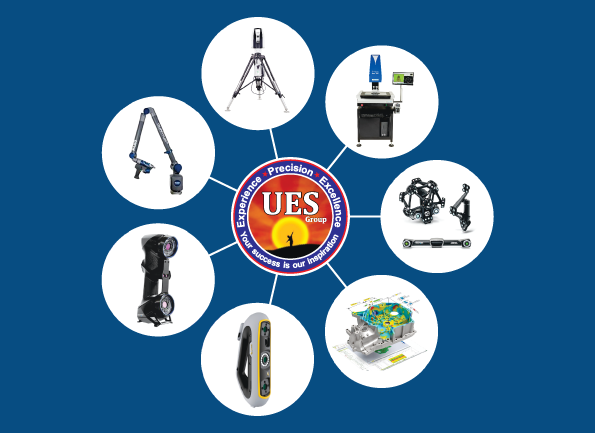Overcoming Modern Manufacturing Challenges
Manufacturers today operate in an environment of constant change, facing challenges such as labor shortages, rising material costs, and intense global competition. These pressures require innovative solutions to maintain efficiency and profitability.
To stay competitive, companies are exploring automation and precision measurement technologies. However, to maximize their impact, manufacturers must take a strategic approach to implementation.
This article explores how Vision Measuring Machines (VMMs) can enhance quality control, efficiency, and automation, providing a scalable pathway toward smart manufacturing.
📌 Image/Video Placeholder (Show a Vision Measuring Machine inspecting a precision component.)
Addressing Automation Hesitation in Manufacturing
Despite automation’s potential to transform production, many manufacturers are hesitant to adopt it fully.
Perceived Complexity of Automation
Automation is often viewed as a disruptive change that requires significant workflow adjustments. Many fear that introducing robotics and automated systems will result in downtime, complex training requirements, or workforce displacement. However, modern automation solutions can be implemented gradually, allowing businesses to adapt at their own pace.
Limited In-House Expertise
Smaller manufacturers often lack the technical resources needed to deploy and manage automation solutions. However, new-generation VMMs are designed for ease of use, requiring minimal training while delivering high-precision measurements.
Cost Concerns
Many manufacturers focus on initial investment costs, overlooking the long-term return on investment. Implementing precision measurement technology reduces material waste, improves efficiency, and ensures product quality, ultimately saving costs over time.
📌 Image/Video Placeholder (Illustrate automation hesitations with a side-by-side comparison of manual vs. automated inspections.)
The Role of Vision Measuring Machines in Automation
Integrating Vision Measuring Machines (VMMs) into manufacturing provides a practical entry point into automation without requiring a complete process overhaul.
These systems offer non-contact, high-precision measurements, making them ideal for:
- Product development – Capturing accurate design models for improved prototyping.
- Quality control – Ensuring components meet specifications at every stage.
- Reverse engineering – Digitally recreating complex parts for reproduction or improvement.
- Inline production inspections – Automating measurements to maintain consistent quality and efficiency.
As businesses scale, VMMs can integrate with robotics and smart manufacturing systems, enhancing inspection speed, reducing errors, and improving overall productivity.
📌 Image/Video Placeholder (Show a VMM inspecting different materials, highlighting its versatility.)
Key Factors for Selecting the Right Vision Measuring Machine
Choosing the best Vision Measuring Machine (VMM) requires evaluating features that ensure long-term efficiency, flexibility, and integration potential.
Scalability
A VMM should support both manual and automated workflows, allowing businesses to start small and expand as production needs grow.
Versatility
An effective system must handle various materials, surface types, and complex geometries without requiring extensive setup or adjustments.
Speed & Accuracy
High-speed data acquisition and precision optics are crucial for maintaining quality standards and meeting tight production deadlines.
Software Compatibility
Seamless integration with existing metrology and manufacturing software ensures smooth data processing, storage, and analysis.
Supplier Expertise & Support
Partnering with a trusted metrology provider ensures ongoing technical support, training, and optimized system performance. Companies should choose a vendor with experience in automation projects and integration services.
📌 Image/Video Placeholder (Show a VMM system integrated into a smart manufacturing setup.)
Conclusion: Vision Measuring Machines as a Gateway to Automation
For manufacturers seeking to improve quality control, efficiency, and scalability, Vision Measuring Machines provide a cost-effective, high-precision solution.
By adopting advanced optical measurement technology, companies can enhance their production processes, reduce manual errors, and gradually integrate automation without overwhelming upfront costs.
A strategic investment in VMMs not only helps businesses meet current market demands but also lays the foundation for future automation and growth. Whether used as a standalone system or as part of an automated workflow, Vision Measuring Machines offer the flexibility to adapt and evolve with industry needs.


Hi, this is a comment.
To get started with moderating, editing, and deleting comments, please visit the Comments screen in the dashboard.
Commenter avatars come from Gravatar.